Oregon Supreme Court to decide if Republican lawmakers who walked out can seek reelection
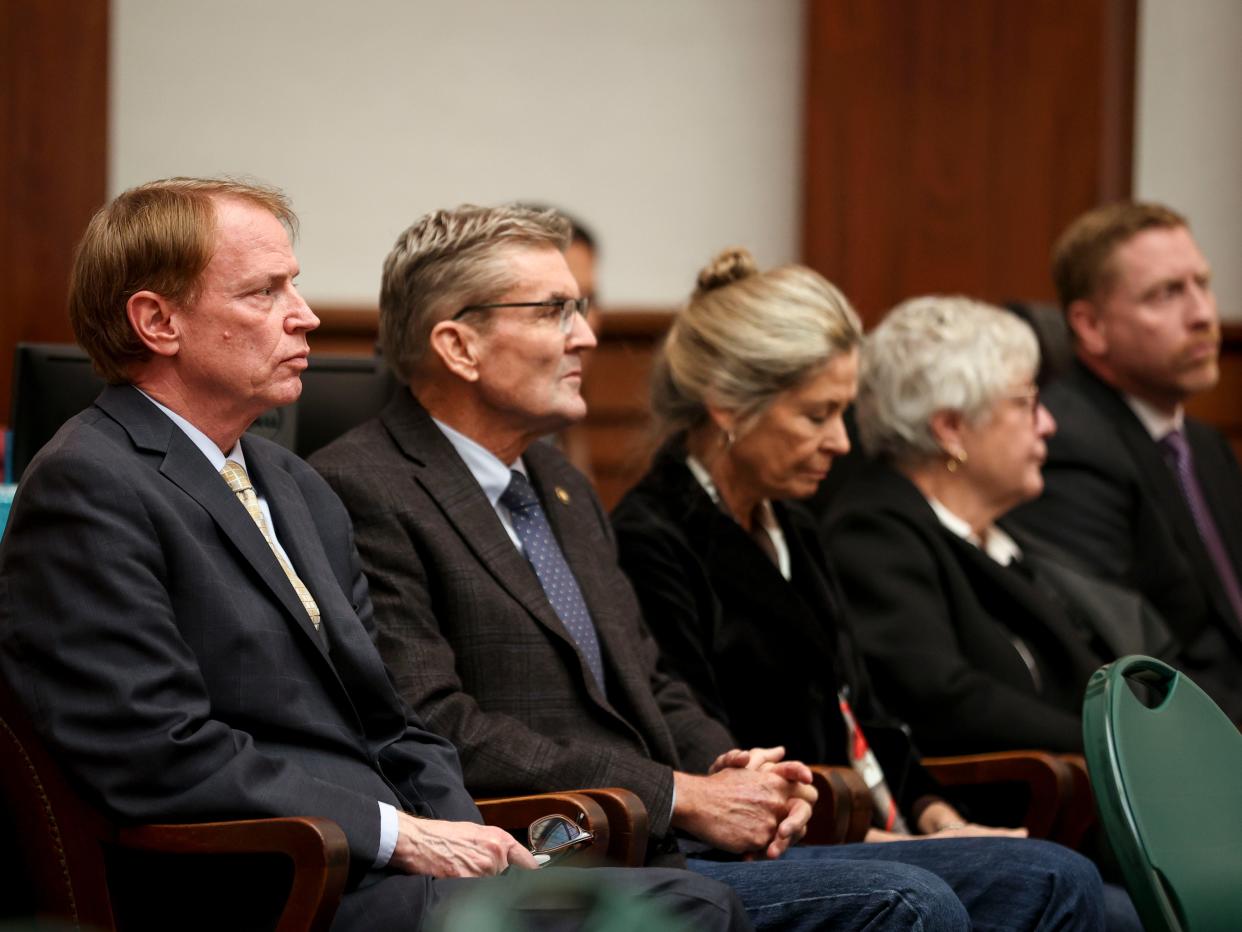
The Oregon Supreme Court on Thursday took under advisement a challenge of GOP lawmakers who walked out of the Oregon Legislature and contend they should not be barred from office until after the 2028 election.
"You should adhere to your precedents, you should not construct a new rule and you should allow the Legislature or the voters to fix the problem," said, attorney John DiLorenzo, who represented the lawmakers.
The intent of Measure 113 was clear, attorney Dustin Buehler, representing the Oregon Attorney General and the Secretary of State, told the justices. The text in the state constitution and language on the ballot made it clear lawmakers who had 10 or more unexcused absences would be disqualified, he said.
The state's high court is expected to issue a ruling by March, deciding whether Secretary of State LaVonne Griffin-Valade's interpretation of Measure 113 was correct.
Republicans are challenging the implementation of Measure 113, an effort to put a stop to legislative walkouts. The bill passed by a 2/3 majority in all 36 of Oregon's counties. The amendment to the state constitution states any lawmaker with 10 or more unexcused absences would be barred from holding legislative office “for the term following the election after the member’s current term is completed.”
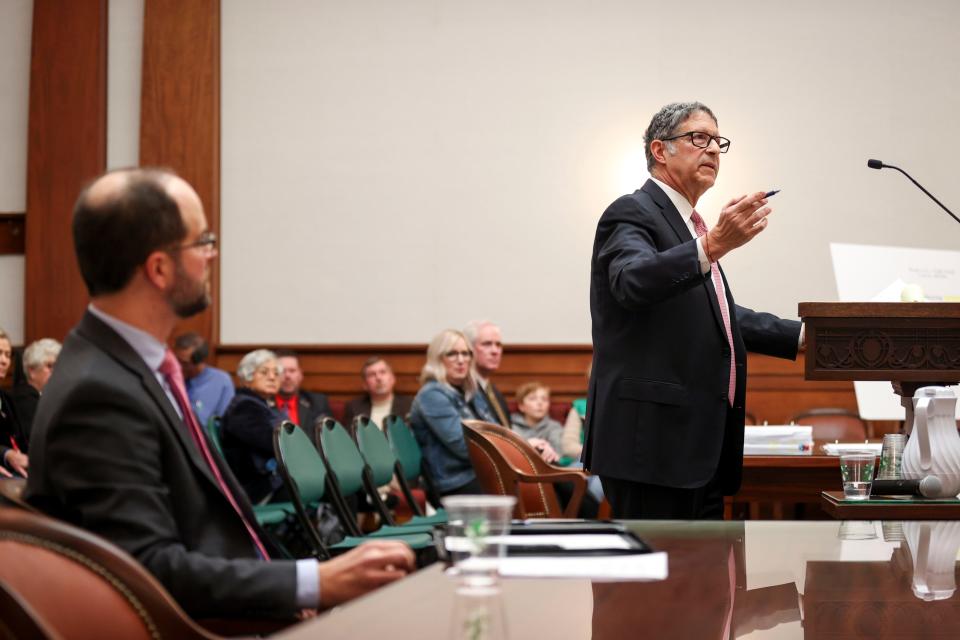
GOP lawmakers still purposefully missed scheduled floor votes in an attempt to halt legislation. Work stalled for six weeks, the longest walkout in state history.
Griffin-Valade issued a temporary rule on Aug. 8, implementing the amended rule of the state constitution and barring lawmakers who had walked out during the 2023 legislative session from filing for reelection for the immediate next term.
Senators Tim Knopp, R-Bend; Daniel Bonham, R-The Dalles; Suzanne Weber, R-Tillamook; Dennis Linthicum, R-Klamath Falls, and Lynn Findley, R-Vale, sued Griffin-Valade, arguing the language in the constitution means they could run for another term before being disqualified.
2023 Oregon legislative walkout part of pattern
Ten GOP Senate lawmakers accumulated more than 10 unexcused absences during the 2023 legislative session.
Republican leadership first told reporters absent lawmakers were protesting the violation of an obscure 1979 law requiring bill summaries be written clearly and at an eighth or ninth-grade reading level. Still, as the walkout continued, the motivation became clearer as Republicans protested various bills related to, among other things, abortion, gender-affirming care, and firearm regulation.
In the end, lawmakers made a deal altering language and eliminating portions of the firearm bills to reach quorum and start a breakneck pace to pass legislation over 10 days.
Lawmakers previously used Oregon's unique quorum rule to protest legislation. Republicans walked out seven times starting in 2019 for hours or days at a time. Democrats similarly staged walkouts in 1995, 2001, and 2007. Walkouts are possible because Oregon one of four states requiring two-thirds of representatives or senators to be present to conduct legislative business.
Throughout the 2023 walkout, Republicans signaled they would challenge Measure 113, and at the end of August, the five senators sued. The secretary of state and the senators asked that the case head directly to the Oregon Supreme Court, citing a need for a decision before the March 2024 candidate filing deadline.
The Supreme Court agreed on Oct. 24 to hear the case.
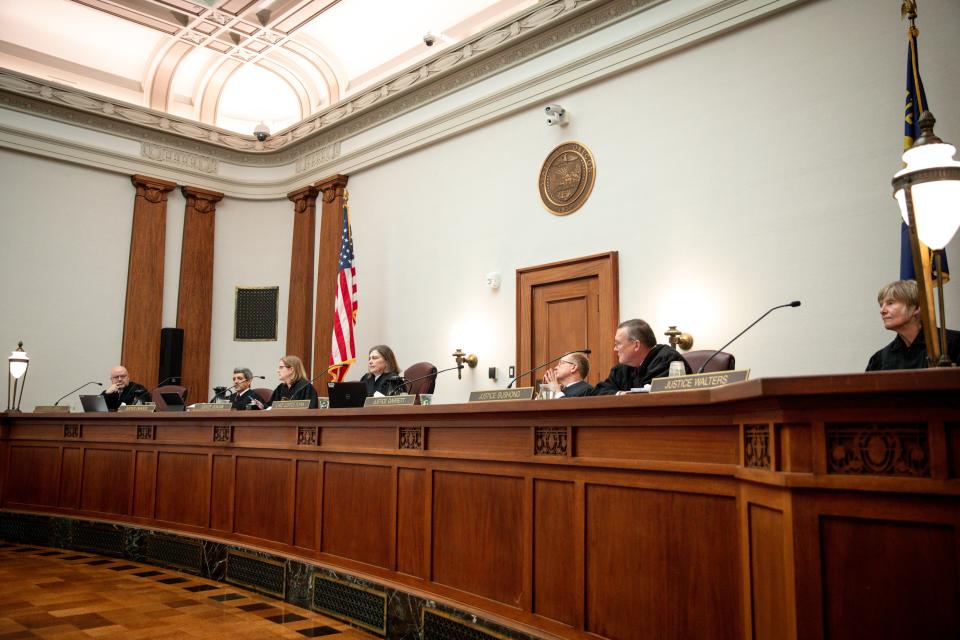
Oregon Republicans point to exact language in constitution
DiLorenzo said in his brief to the justices that despite the "highly publicized political dispute" behind the walkout, the case focuses on "nothing more than a straightforward application" of the language in the constitutional amendment.
They argue that the specific language in the amendment bars a legislator who violated Measure 113 from serving the term after the next legislative term as elections are held before terms end.
"First there is a full legislative term (in which all the unexcused absences must be counted), then there is the first election that takes place after that term is completed, and then the term following that election is when a disqualified legislator is barred from holding office," the brief said.
It's an argument the secretary of state has pushed back on. Voters intended to disqualify legislators from serving in the immediate next term after they walked out, Griffin-Valade said in a statement following her temporary ruling. Lawyers responding to the lawmakers' brief repeat the explanation.
"Nothing in the voters’ pamphlet or public discourse on the measure suggests that voters were concerned about the hypothetical scenarios petitioners raise," adds the brief.
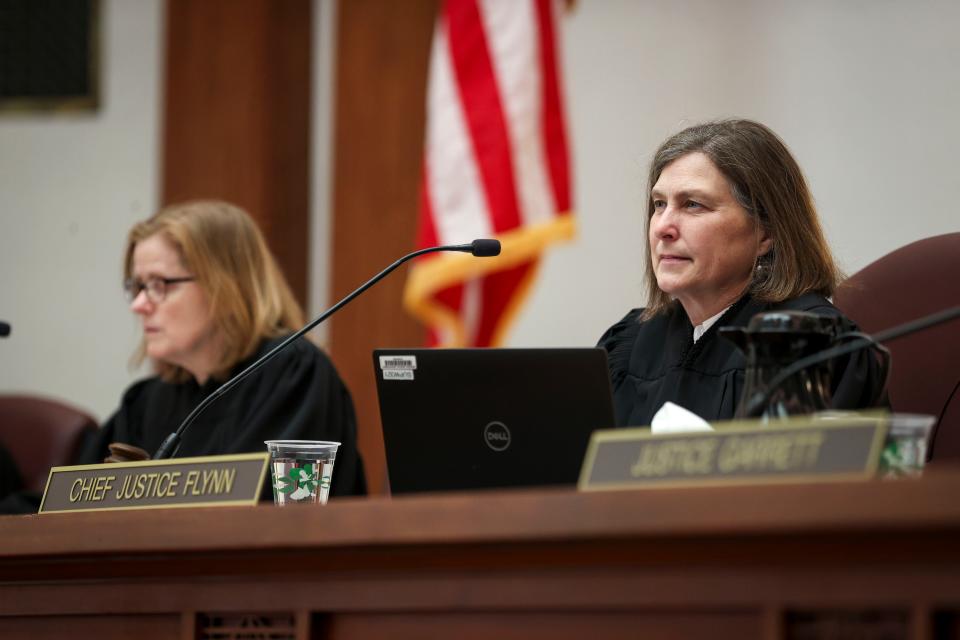
Lawyers for the secretary of state cited articles from OPB, The Oregonian, Statesman Journal and others as evidence the public interpreted Measure 113 to apply immediate consequences.
“It is clear voters intended Measure 113 to disqualify legislators from running for reelection if they had 10 or more unexcused absences in a legislative session,” Griffin-Valade said in October. “My decision honors the voters’ intent by enforcing the measure the way it was commonly understood when Oregonians added it to our state constitution.”
Asian Pacific American Network of Oregon, Basic Rights Oregon, Oregon AFSCME Council 75, Oregon Education Association, Oregon League of Conservation Voters, Accion Politica PCUNista, Planned Parenthood Advocates of Oregon and SEIU Local 503 filed a joint brief in support of the secretary of state's position urging the court to uphold Griffin-Valade's interpretation. In their brief to the court, the American Civil Liberties Union of Oregon also asked the court to reject the Republicans' petition.
Andrea Kennedy-Smith and Reed Scott-Schwalbach, chief petitioners of Measure 113, also filed their own brief calling the suit an "eleventh hour defense" that "should be viewed for what it is; an attempt to evade the consequences of Petitioners’ decision to bring the work of the people to a halt by not attending floor sessions for over six weeks, thereby accumulating more than ten unexcused absences."
Oregon Supreme Court justices hear arguments over Measure 113
DiLorenzo told the justices the court should rely on the "unambiguous meaning” of the text in the Constitution. Looking at the language, "there is no other election this can follow" other than the Nov. 2028 election, he urged.
Chief Justice Meagan Flynn, at one point, agreed with DiLorenzo that at first reading his interpretation would be correct. But she asked how so many people could have read it differently, if that were the case.
"Chief Justice, this was a case of compounding error,” DiLorenzo replied.
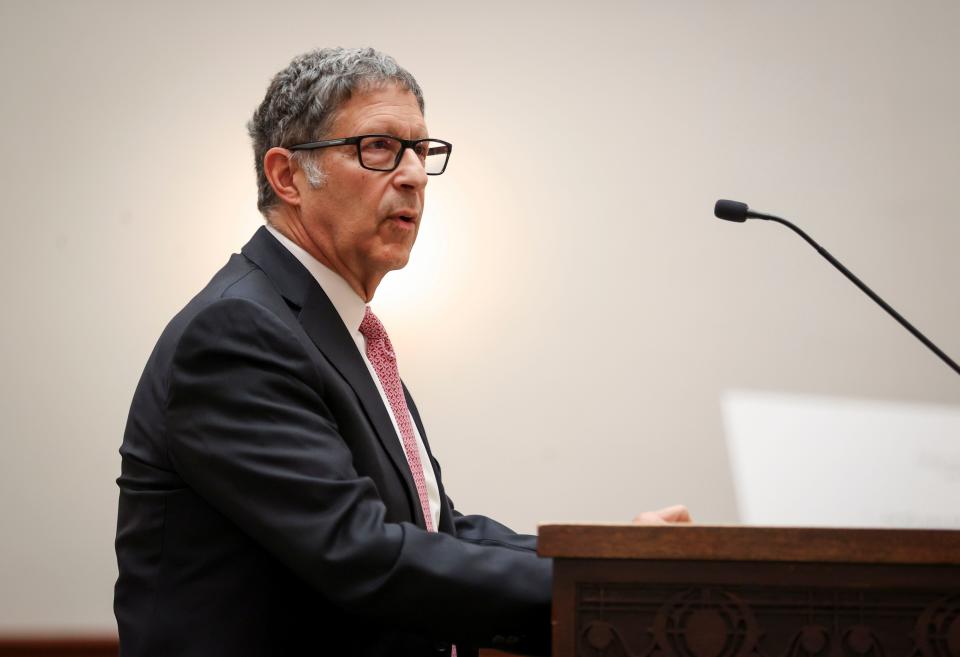
The Attorney General relies on complaints and comments from others when drafting and reviewing ballot initiatives, he said. The Supreme Court also reviews ballot titles. In the case of Measure 113, no one brought any other comments, DiLorenzo said, and a ballot title was certified despite the error.
"There is no other way to read this," DiLorenzo said. He used a large poster board to emphasize the text in the constitution and outline what he said would be the timeline for lawmakers' disqualification. Ballot titles, he added, are not added to the Constitution.
DiLorenzo urged the court not to become a "super legislature" omitting words or adding words to fit what may have been intended but was not enacted.
In a brief meeting with reporters outside the courtroom after the hearing, Knopp said the justices only have one way to go. Voters were "misled" by special interest groups when voting for Measure 113, Knopp said, in response to what he would tell voters who had voted for the ballot measure intending for immediate consequences. He also said he does not regret participating in the walkout.
"We believe we did the right thing," he said.
“Though the plain language of Measure 113 is unambiguous and clearly allows members to run again in 2024, partisan Democrat leaders and their friends at the DOJ have asked the Oregon Supreme Court to turn a blind eye,” Knopp added in a statement. “Our hope is that the system of checks and balances will prevail and the decision to silence those who opposed lawlessness will be reversed.”
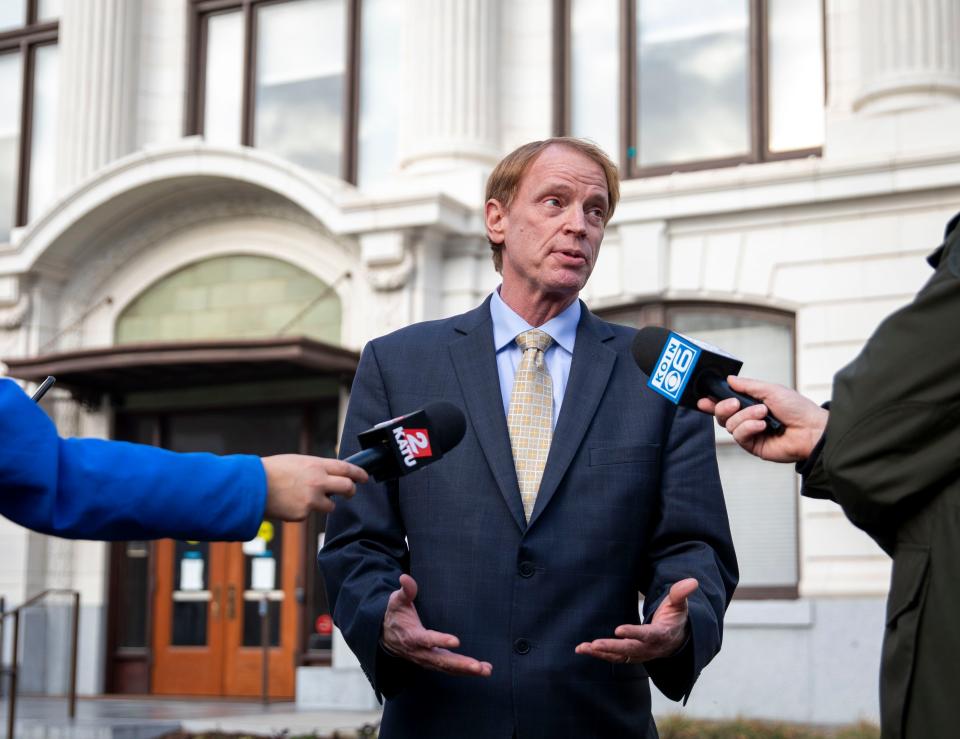
Buehler argued that intent was crystal clear in this case.
"This court’s question, at its core, is to determine what were voters trying to do. What do voters understand," he said.
When asked why the court should treat materials outside of the actual text as significant, Buehler said the ballot title, caption and results statement deserved “a lot of weight” because it was the words voters were most likely to see.
Buehler conceded the secretary of state's interpretation of the text could be "redundant" and not the most natural reading, but he said subverting the intent of the voters should give justices pause.
"I'm sure drafters [of the measure] wish they could get a mulligan," Buehler said but referred to the lawsuit as an "after the fact, textual game of gotcha."
"This is obviously an issue that's very important to the voters of Oregon and to the legislative assembly," Buehler said.
Both parties are expecting a decision before the March filing deadline.
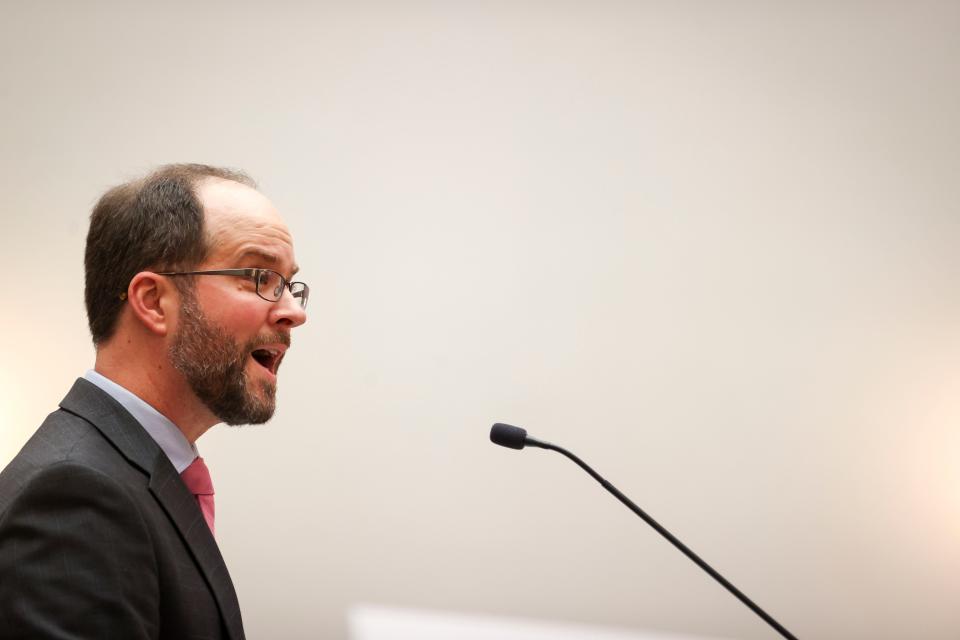
The 10 Oregon state senators who had 10 or more unexcused absences during 2023 legislative session
Sen. Daniel Bonham, R-Dalles.
Sen. Lynn Findley, R-John Day.
Sen. Bill Hansell, R-Athena.
Sen. Cedric Hayden, R-Springfield.
Sen. Tim Knopp, R-Bend.
Sen. Dennis Linthicum, R-Klamath Falls.
Sen. Kim Thatcher, R-Keizer.
Sen. Art Robinson, R-Cave Junction.
Sen. Suzanne Weber, R-Tillamook.
Sen. Brian Boquist, who represents Senate District 12 in Polk and Yamhill counties. Boquist was an Independent during the walkout but has again registered as a Republican.
Dianne Lugo covers the Oregon Legislature and equity issues. Reach her at dlugo@statesmanjournal.com or on Twitter @DianneLugo
This article originally appeared on Salem Statesman Journal: Oregon Supreme Court hears GOP's challenge to Measure 113

